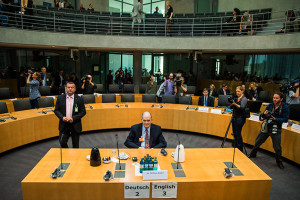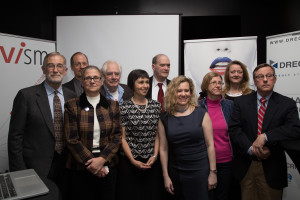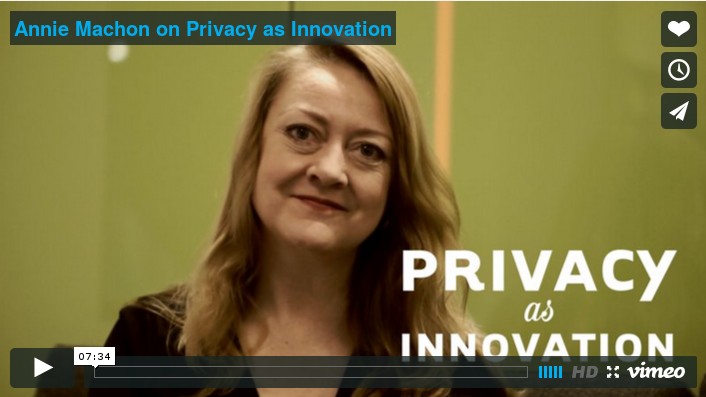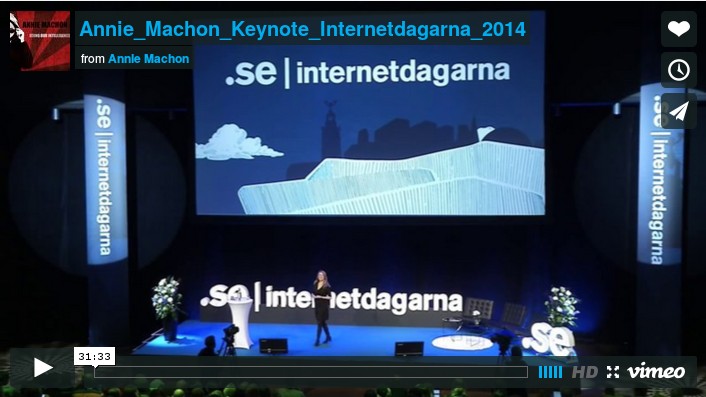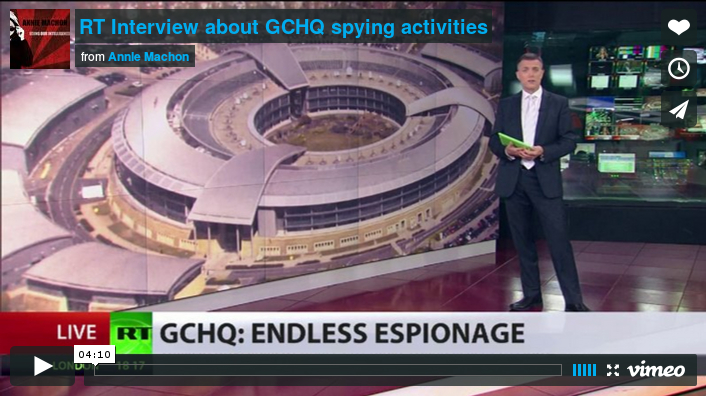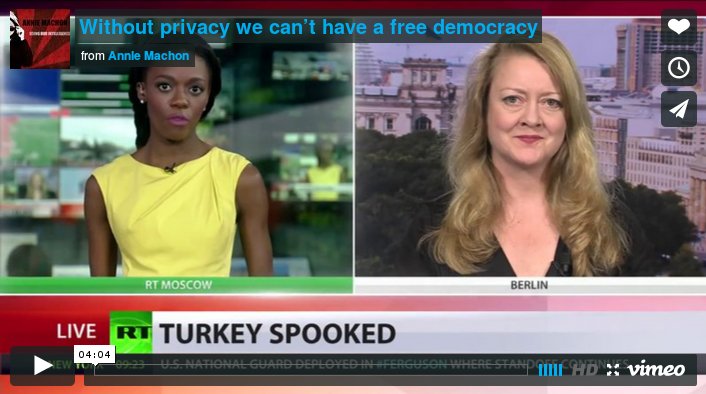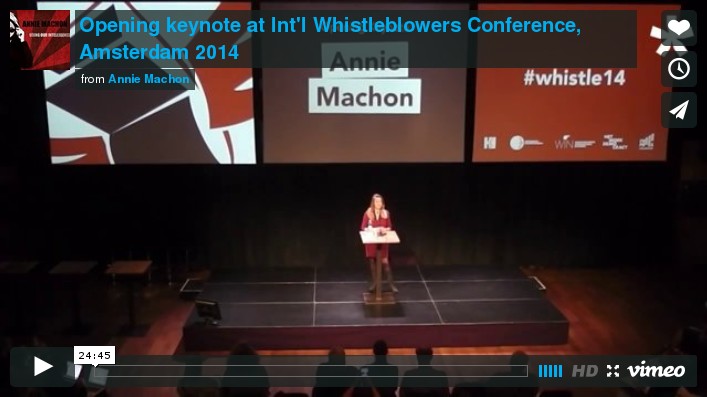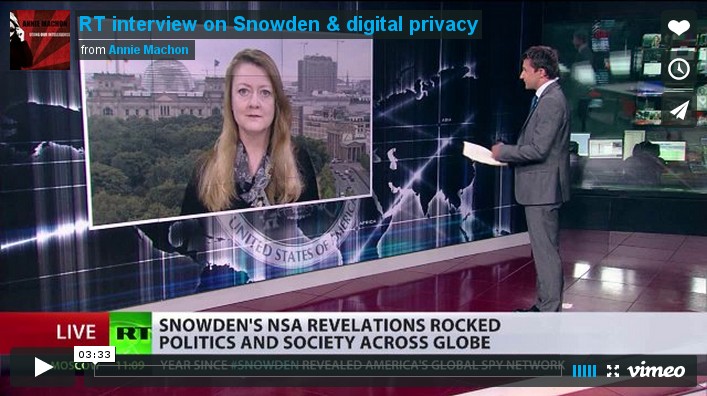First published on RT OP-Edge. Also on Consortium News, Huffington Post, and the Sam Adams Award website.
A year ago I stumbled across a story about a worrying new surveillance programme developed by the NSA: Prism. While nobody was identified as the source of the disclosure, I was awestruck by the bravery of this unknown person.
At that time the Obama administration had been waging an aggressive war on whistleblowers: ex-CIA officer, John Kiriakou, who exposed the CIA’s torture programme, was languishing in prison while the torturers went free; Kirk Wiebe, William Binney and Thomas Drake of the NSA had narrowly escaped prosecution for exposing NSA malfeasance — indeed, despite having gone through all the approved channels, Drake had faced a 35-year prison sentence; and of course the kangaroo court had just started to try Chelsea Manning for her exposure of US war crimes. Inevitably, it is the whistleblower Manning who is now serving a 35 year stretch in prison, not the war criminals.
President Obama has used and abused the 1917 US Espionage Act against whistleblowers during his years in the White House more times than all his predecessors put together, while at the same time allowing a bone fide spy ring — the Russian illegals exposed in 2010 — to return home. This paranoid hunt for the “insider threat” has been going on since at least 2008, as we know from documents leaked to Wikileaks in 2010.
Against this background, fully aware of the hideous risks he was taking and the prospect of the rest of his life behind bars, a young man stepped forward. Four days after the initial Prism disclosure, Edward Snowden announced to the world that he was the source of the story and many more to come. He was clear then about his motivation and he remains clear now in the few interviews he has done since: what he had seen on the inside of the NSA caused him huge concern. The American intelligence infrastructure, along with its equivalent agencies across the world, was constructing a global surveillance network that not only threatened the constitution of the United States, but also eroded the privacy of all the world’s citizens.
The global surveillance state wanted to “master the internet”, as another disclosure proved, and the UK’s GCHQ stepped up to the plate. As increasing numbers of us conduct aspects of our lives over the internet (be it banking, health, social lives, organisations, activism, relationships) this growing lack of privacy strikes at the very root of democracy. Privacy was enshrined as a basic human right in the UN Declaration in 1948 precisely because without it we are vulnerable to the encroachments and abuses of the state. What Snowden has disclosed would the the Stasi’s wet dream and goes far beyond the dystopic horrors of George Orwell’s novel “1984”.
So what did Snowden disclose? Prism was only the start, and that was bad enough — a programme to scoop up all our metadata: whom we’re in contact with, for how long, what we’re reading, what we’re viewing. NSA apologists say that this is not invasive, it is not looking at the contents of communications. I can assure your that metadata is intelligence gold dust. It can provide a far more detailed overview of a person’s life than any individual communication often can.
But it gets worse. Then came Tempora and associated documents that disclosed that the UK’s GCHQ was mainlining information from the transatlantic fibre optic cables, which affected all European citizens, as well as displaying how GCHQ was prostituting itself to the NSA for money and putting NSA objectives above the priorities of the UK government.
And then XKeyscore, enthusiastically used by Germany’s BND, presumably without the knowledge of its political masters. There have been many more: Brazil’s Petrobras oil company, the French telephone network, charities, the Muscular access point and the massive Fascia database, which contains trillions of device-location records.…. Where to stop?
This year Britain’s Joint Threat Research Intelligence Group was using Squeaky Dolphin’s real-time monitoring of social media networks, and the bulk collection of private webcam images via the Optic Nerve programme.
This last most grimly does away with the “done nothing wrong, nothing to hide” argument. In this era of families living in different countries and long distance relationships, video skype is increasingly used to stay in contact with loved ones. And this contact can be somewhat intimate at times between couples. On video. Anyone who has ever used skype for such purposes must surely be feeling violated?
Out of this morass of spying came moments of personal annoyance for western politicians, not least the information that German Chancellor Angela Merkel’s mobile phone was also being tapped, as were those of numerous other politicians. Which rather blows out of the water the much-abused argument that all this surveillance is to stop terrorists. On what planet would the NSA spooks need to live to seriously think that Merkel could be deemed a terrorist?
All these disclosures are of the gravest public interest. Yet how have western politicians reacted? In the usual way — shoot the messenger. All the standard li(n)es have been trotted out by the spies: Snowden was too junior to know what he is talking about, and was “just” a contracted systems administrator (this line says more the ignorance of the politicians about all things tech than anything about Snowden’s job); that Snowden is a traitor for fleeing to Russia, when in fact he was trapped there by the USA withdrawing his passport while in transit to Latin America; or that he should “man up” and return to the US to stand trial. There were even apparently calls from the spies for him to be extrajudicially murdered.
Despite this, his disclosures have resulted in congressional hearings in the US, where senior spooks have been caught out lying about the efficacy of these spy programmes. A US federal judge has declared the NSA’s activities unconstitutional, and minor reforms are underway to protect the rights of US citizens within their own country.
Which is a start. However, that still leaves the rest of us living under the baleful gaze of the NSA and its vassals.
The British response has been largely muted, with politicians immediately assuring the grateful citizens of the UK that everything done by the spies is legal and proportionate, when in fact it was manifestly not. Nor is this any consolation for the rest of Europe’s citizens — after all, why should the British Foreign Secretary be able to take it upon himself to authorise intercept programmes such as Tempora that sweep up the communications of an entire continent?
Press discussion of Snowden’s disclosures in the UK has been largely muted because of a censorship notice slapped on the media, while the Guardian newspaper that helped to break the story had its hard disks smashed up by GCHQ.
Other countries have displayed a more robust response, with Brazil planning to build its own transatlantic cables to Europe to avoid the Tempora programme, and in Germany people have been demanding that the constitution be upheld and privacy ensured against the American surveillance behemoth.
The European parliamentary Civil Liberties, Justice and Home Affairs (LIBE) committee has held months-long hearings with evidence from tech experts, whistleblowers and campaigners about what it should do to protect EU citizens from the predations of the US. Edward Snowden himself gave a statement. This is all well and good, but it would be more helpful if they could give Snowden asylum in Europe and also put in place some meaningful measures to protect our rights one year on — in fact, all they would need to do is enact the provisions of the European parliament’s own July 2001 report into the Echelon fiasco.
Echelon, some of you may remember, was a global proto-surveillance network, where the intelligence agencies of the US, UK, New Zealand, Australia, and Canada (now called Five Eyes) could all share product and subvert oversight measures in each others’ countries. In 2001 the EU recommended that Europe develop its own internet infrastructure and move away from its dependency on US corporate proprietary software. All good suggestions, but all too soon forgotten after 9/11 and the rush to the “war on terror”.
One year on from Snowden I would suggest that these measures should indeed be implemented. The European Parliament needs to take action now and show its 500 million citizens that it is serious about protecting their rights rather than pandering to the demands of the US government and its corporate sponsors.
So, on this anniversary, I want to salute the bravery of Edward Snowden. His conscious courage has given us all a fighting chance against a corporate-industrial-intelligence complex that is running amok across the world. I hope that we can all find within us an answering courage to do what is right and indeed take back our rights. His bravery and sacrifice must not be in vain.
